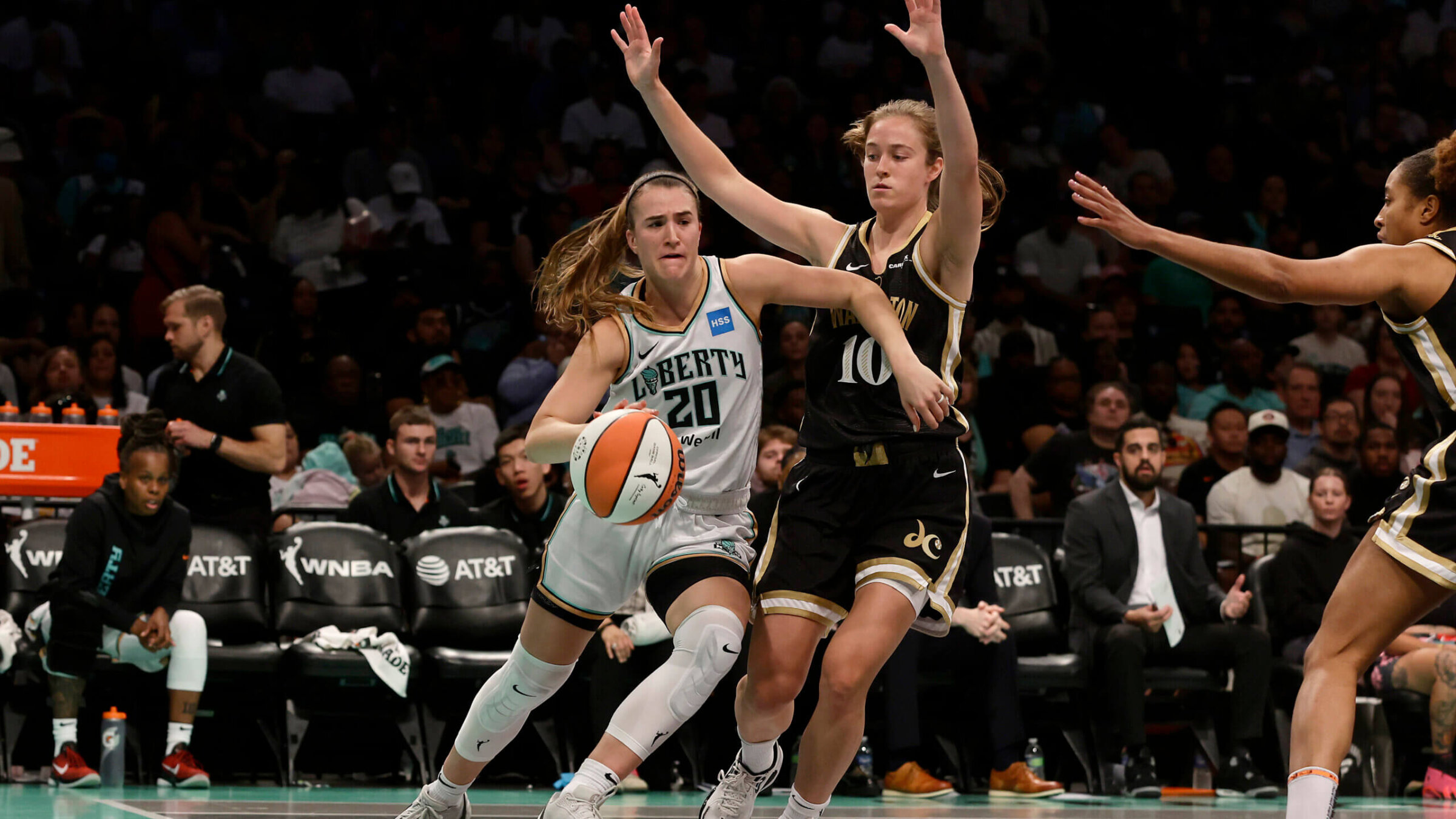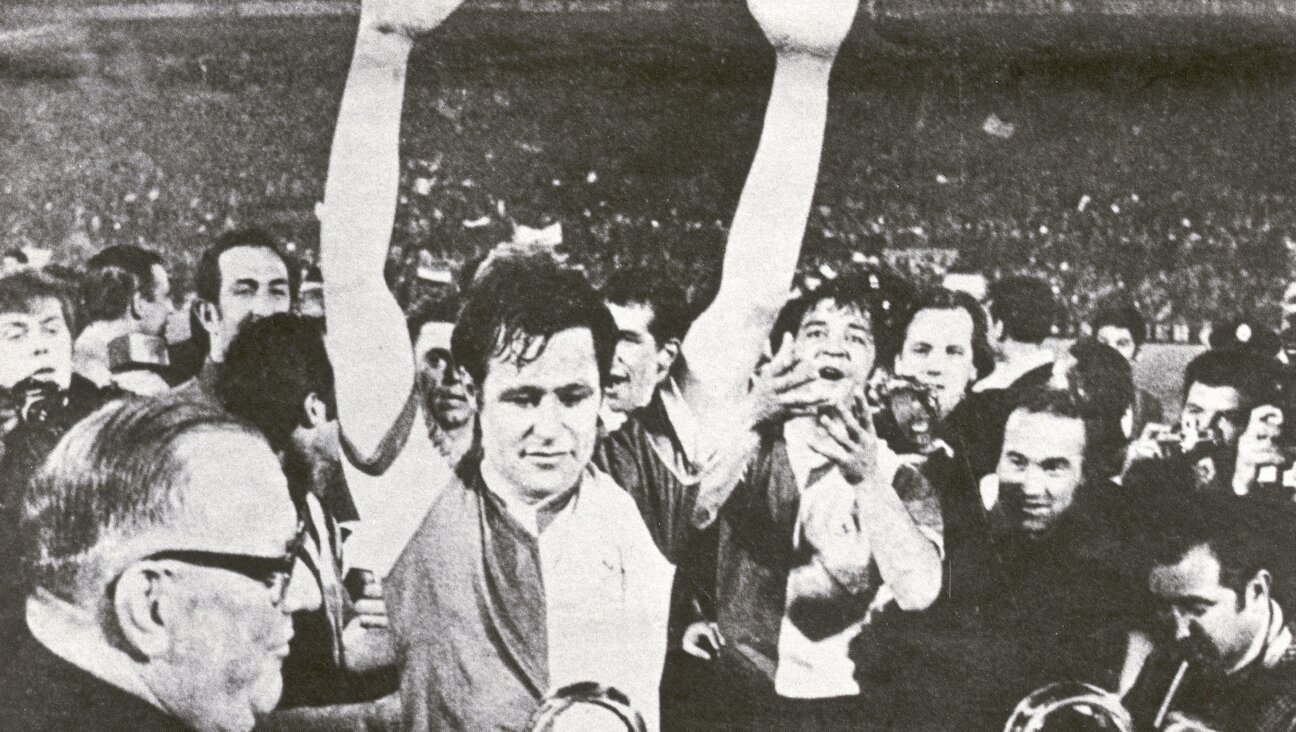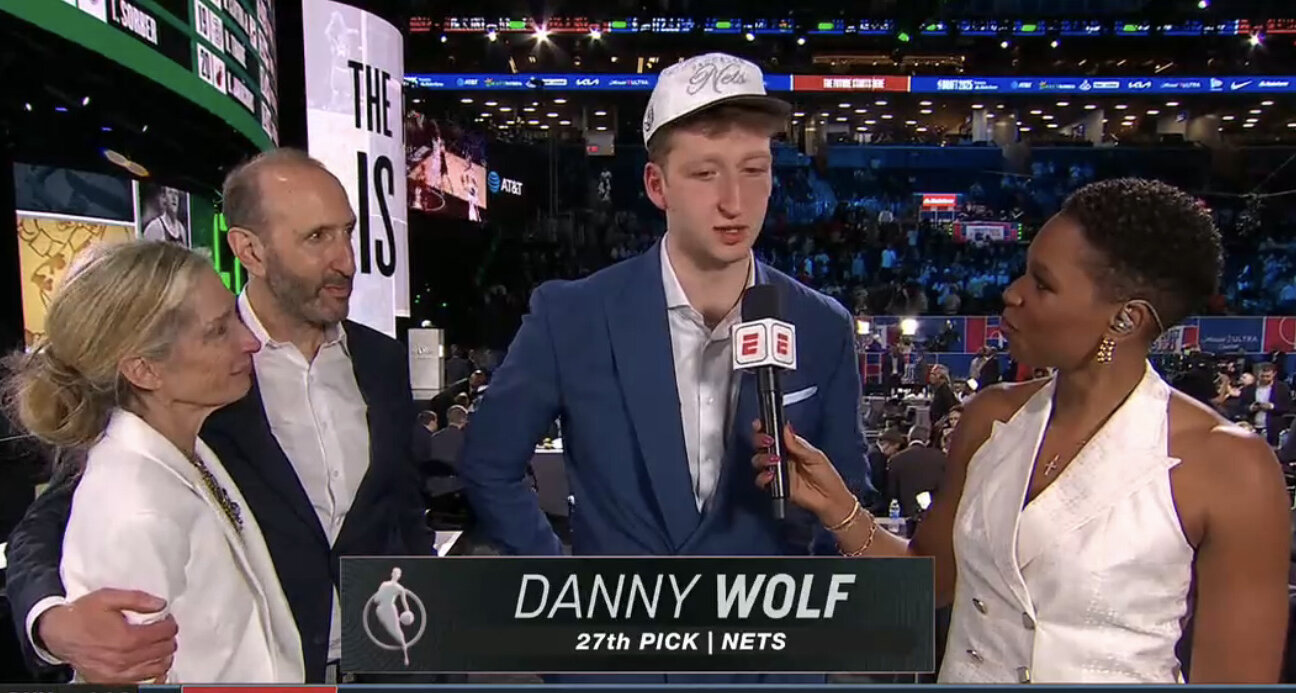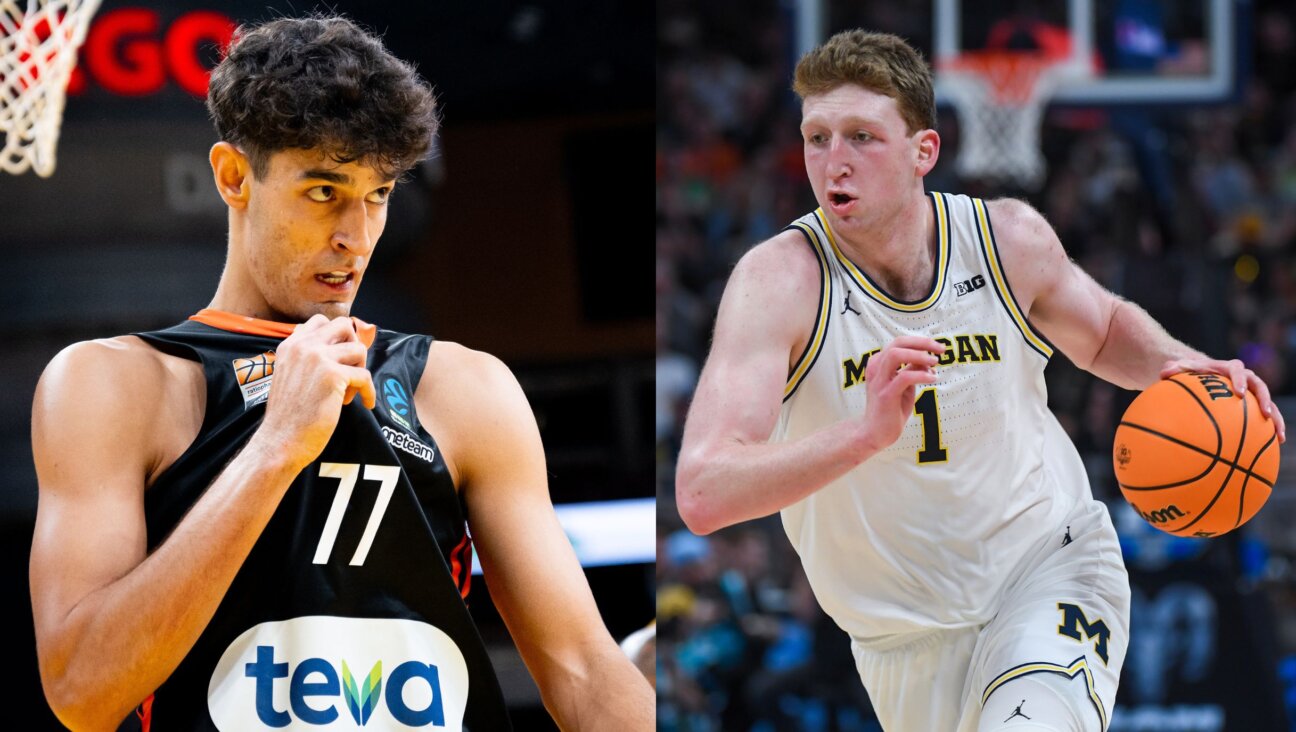From Maccabiah to WNBA: Will Abby Meyers be the next Jewish basketball star?
Maccabiah gold medalist Abby Meyers is fighting for her WNBA life — and sharing her Jewish story wherever she can

Abby Meyers defends Sabrina Ionescu of the New York Liberty in a June game in New York City. The Liberty defeated the Mystics in overtime, 89-88. Photo by Jim McIsaac/Getty Images
Minutes into her professional basketball debut with the Washington Mystics, Abby Meyers, then the only Jewish player in the WNBA, got distracted.
Sue Bird, future Hall of Famer and previous owner of the title “only Jewish player in the WNBA,” was sitting courtside — right behind her.
“Focus on the game!” Meyers, 23, recalled telling herself.
Meyers, a 6-foot-tall point guard, is hoping to emulate Bird in more ways than one: Bird played 22 years in the WNBA, famously winning titles in three decades. But before Meyers can think about winning titles or spending decades in the league, she needs to find a team to call her own.
For a brief 10 days this summer, Meyers, who played college ball at Princeton and the University of Maryland, had a home in the WNBA. The Washington Mystics were missing two key offensive players, so they signed Meyers, a prolific shooter, to a 10-day hardship contract. That stint, which ended July 4, gave Meyers her first career points, a regular rotation spot and a chance to learn from a veteran-laden team.
It meant more, because with the Mystics, Meyers found herself playing only 9 miles from the synagogue she grew up attending. And in addition to all she hopes to accomplish on-court in the WNBA, Meyers dreams of using her platform as an athlete to embrace and share her Jewish heritage.
“When given the opportunity to educate people, to talk about my Jewish heritage, and how I grew up, I don’t hesitate,” Meyers said.
‘A huge surprise’
A shooting specialist able to defend multiple positions, Meyers set records and won a Maryland state championship at Walt Whitman High School. Her journey took her and her loved ones by surprise: Though she was a gifted player, she had largely grown up playing with her sisters and friends, only joining an elite AAU travel team in high school.
“My parents didn’t have any athletic expectations for me and my sisters,” Meyers explained.
She found collegiate success after earning a spot on Princeton’s basketball team, where she earned Ivy League Player of the Year in her final season. She parlayed that success into a leading role on the 2022 USA team at the Maccabiah games in Israel, the Jewish Olympics. There, she captained her team to a gold medal.
And with a year of athletic eligibility left after graduating from Princeton, she transferred home to the University of Maryland, where she worked toward a master’s of science in business and management while helping the team make a run to the quarter finals of the NCAA tournament.
Then came the WNBA draft, in April 2023.
Hearing her name called by the Dallas Wings “at number 11 was a huge surprise to me and my family,” Meyers said. But before Meyers appeared in a game, she was cut from the team. “I wasn’t consistent” in training with the team, Meyers said. “I didn’t play as well as I wanted to, and that kind of psyched me out a little bit.”
For a player who had been known for her leadership, the cut was a wake-up call: A reminder that in the American professional league with the fewest roster spots, even surviving training camp is a luxury afforded to precious few players.
‘She’s not afraid’
But Meyers had met challenges in her path as an athlete before. Prior to becoming a captain at the collegiate level, she had to take a gap year from playing after her freshman season at Princeton. “She wasn’t shy that it was a really hard, disappointing thing,” said Nina Hazra, a friend and former teammate of Meyers’ from Potomac.
Meyers took a short mental break after getting waived by the Wings, her first time off in well over a year. But she quickly returned to training, just as she did at Princeton, hoping to land with a new team.
When, a month later, the Mystics reached out about a 10-day hardship contract, Meyers resolved to get the most out of the opportunity. And so she did, working on her shot speed, and mining her veteran teammates and coaches for tips on spacing and help defense.
In her first game in D.C., Meyers played a career-high 10 minutes across three stints on the court, each marked by raucous cheers for the hometown rookie.
Speaking postgame to the media about the fans screaming her name, Meyers swore that her family and friends “weren’t the ones that started” the cheers; that interview was interrupted by veteran guard Natasha Cloud, who has welcomed Meyers into the Mystics backcourt, and loudly cheered “Abby! Abby!” from across the Mystics’ practice gym.
Speaking after Meyers’ home debut, Mystics Head Coach Eric Thibault said that “the best thing about her is she’s not afraid” — to guard better players, or to shoot when she’s got a chance.
Despite being a free agent again, Meyers hopes she can be a role model for other Jews fighting for roster spots in the future. Speaking of her Maccabiah teammates, Meyers said that in just a short time, she’s “learned so much already of just the business of the WNBA that if anyone wants to know the behind the scenes work of it,” she’s “an open book.”
And while the sharpshooter is focused on the WNBA for now, she sees opportunities abroad during the WNBA offseason — just as Bird, her Jewish predecessor, did. Bird spent a decade of offseasons playing in the Russian professional league, and Meyers says she has a couple overseas opportunities calling her attention.
Could one of those opportunities be in Israel? She’s coy, but confirmed that she is “looking to play overseas in the offseason.”
For now, the most recent only Jewish player in the WNBA — and, likely, the next only Jew in the WNBA as well — Meyers is embracing that identity, and has a message to young girls playing the game. “Be proud to be Jewish, even if you’re the only person there.”
























